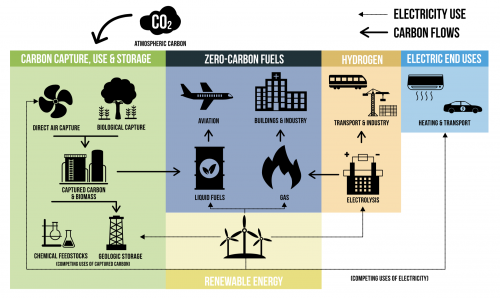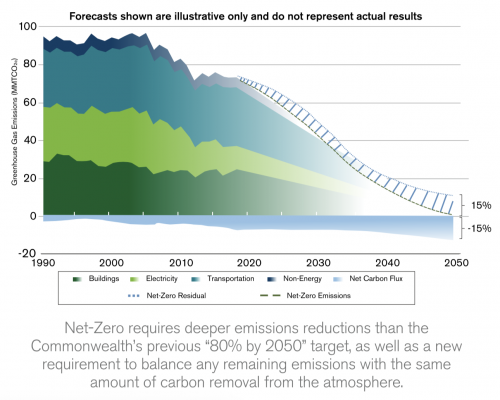All
It’s Happening Now

Heating oil and propane targeted for extinction in Massachusetts
In December 2020 and January 2021, Massachusetts lawmakers, Governor Charlie Baker, and energy policymakers enacted climate change legislation, announced sweeping policies, endorsed the regional Transportation & Climate Initiative Program, and took initial steps to eliminate the state’s Mass SaveÆ rebates and no-interest loans for heating oil customers. In reporting on these developments, the Massachusetts Energy Marketers Association (MEMA) identified the state’s actions as a coordinated effort to convert over 1 million homes from heating oil and propane to electric heat pumps.
12 Years in the Making
MEMA said the seeds for this activity were planted in 2008 when Massachusetts enacted one of the first laws in the country to address carbon emissions reductions, the Global Warming Solutions Act (GWSA), along with the Green Communities Act, which gives the Massachusetts Department of Energy Resources (DOER) broad authority to improve energy efficiency in all homes using any heating fuel.
However, the most recent deluge of climate change laws and policies are the result of a Massachusetts Supreme Judicial Court decision from 2016. In this case, the state’s highest court unanimously agreed with the Conservation Law Foundation, the Massachusetts Energy Consumer Alliance and four plaintiffs who argued the state failed to meet its legal obligation under the 2008 GWSA to set and enforce annual limits on greenhouse gas emissions.
Following the court decision, Governor Baker issued an Executive Order directing “the Secretary of Energy and Environmental Affairs and the Department of Environmental Protection to take certain steps to reduce greenhouse gas emissions and prepare for the impacts of climate change, including setting statewide greenhouse gas emissions limits for 2020, 2030, 2040 and 2050.”
MEMA said that over the past 12 years its staff, lobbying team, and association members have worked diligently to position heating oil blended with renewable biodiesel, or Bioheat® fuel, as a key component to mitigate the impacts of climate change. Throughout this effort, MEMA has received manpower and technical assistance from the National Biodiesel Board and the National Oilheat Research Alliance and support from the National Energy & Fuels Institute (NEFI).
“We have done everything in our power up to this juncture to explain that the heating oil industry is committed to being a partner in climate change activities, and that Bioheat is a drop-in, economic, turn-key fuel solution; and that electric heat pumps are expensive, perform poorly in very cold conditions and are not suitable as a primary heating source,” said MEMA Executive Director Michael Ferrante.
A Roadmap for Climate Policy
On January 4, 2021, the Massachusetts legislature passed Senate bill No. 2995, “An Act creating a next-generation roadmap for climate policy.” The bill requires statewide emission reductions of 50 percent from 1990 levels by 2030, 75 percent by 2040 and at least 85 percent by 2050. This includes sector-based “sub-limits” on emissions from electric power, transportation, commercial, industrial, and residential heating and cooling, industrial processes, and natural gas distribution and service.
Perhaps most concerning to heating oil and propane dealers, the bill would give broad authority to cities and towns to update building codes with so-called “stretch” energy codes that would prohibit fossil fuels in new construction.
On January 14, Governor Baker vetoed the bill. Baker told the State House News Service that he supports some of bill’s directives, but opposes several components of the measure, including the building code changes. Baker said, “One of my big concerns is I’ve gotten a lot of incoming from a lot of folks who are in the building and home construction business who have said that certain pieces of this bill, which remember I can’t amend and send back, literally may just stop in its tracks any housing development in the commonwealth, and those words get my attention.”
Baker added, “We’ve got to build more housing that’s less expensive, not less housing that’s more expensive. And that issue, in particular, really rings true for me, especially as we come out of this terrible period we’ve been in.”
House Speaker Ronald Mariano and Senate President Karen Spilka re-filed the climate change bill shortly after it was vetoed.

Clean Energy & Climate Plan
On December 30, 2020, state energy officials released the “Clean Energy & Climate Plan for 2030.” Across 53 pages, this policy document lays out a plan for achieving statewide emission reductions of 45 percent by 2030.
Calling “the continued use of petroleum heating oil” inconsistent with the state’s emission goals, the document calls for long-term declining caps to be placed on all heating fuel emissions (natural gas, heating oil and propane). The plan also calls for a task force on clean heat to be convened in 2021. MEMA aimed to provide written comments to state energy officials by February 22, 2021.
The state also released its Massachusetts 2050 Decarbonization Roadmap, “a report commissioned by the Massachusetts Executive Office of Energy and Environmental Affairs to identify cost-effective and equitable strategies to ensure Massachusetts achieves net-zero greenhouse gas emissions by 2050.” Though the report includes discussion of biofuel blending, it appears to favor electric heat pumps and vehicles as solutions for emission reductions in heating and transportation.

Adding Insult to Injury
Finally, in what MEMA called “a most troubling development,” the DOER’s Energy Efficiency Advisory Council (EEAC) gave initial approval in December 2020 to cut all Mass Save® rebates to heating oil customers for oil-fired heating
system upgrades by 2022, and to eliminate zero-interest HEAT loans to heating oil customers to help them pay for the installation of new, high-efficiency heating systems, also by 2022.
MEMA said the move was designed to further incentivize conversions from heating oil to electric heat pumps and that propane systems would also be impacted by the proposed cuts. As a non-voting member of the EEAC, Ferrante voiced his
opposition to these changes when they were first presented on December 15, 2020 and followed up with a formal letter on December 17.
Transportation & Climate Initiative
Although it does not directly impact heating fuels, in late December 2020 Massachusetts Governor Charlie Baker and three other governors announced a joint effort to “cut transportation emissions and reinvest in communities.” Dubbed the Transportation & Climate Initiative (TCI-P), the program will tax gasoline and diesel fuel and ostensibly use approximately $300 million every year to “modernize transportation, improve public health, and combat climate change.”
NEFI opposes the initiative on the grounds that it would increase fuel costs for all consumers, including those hit hardest by the COVID-19 pandemic. For more information, see the op-ed by NEFI President & CEO Sean Cota.
Related Posts
 From Retailer to Representative: Chris Keyser’s Road to the Vermont State House
From Retailer to Representative: Chris Keyser’s Road to the Vermont State House
Posted on June 16, 2025
 Northeast Working Group for Industry Principles Gets to Work
Northeast Working Group for Industry Principles Gets to Work
Posted on May 8, 2025
 Trump Policies and Energy Markets
Trump Policies and Energy Markets
Posted on April 28, 2025
 NEFI Introduces the National Home Comfort PAC
NEFI Introduces the National Home Comfort PAC
Posted on April 28, 2025
Enter your email to receive important news and article updates.
